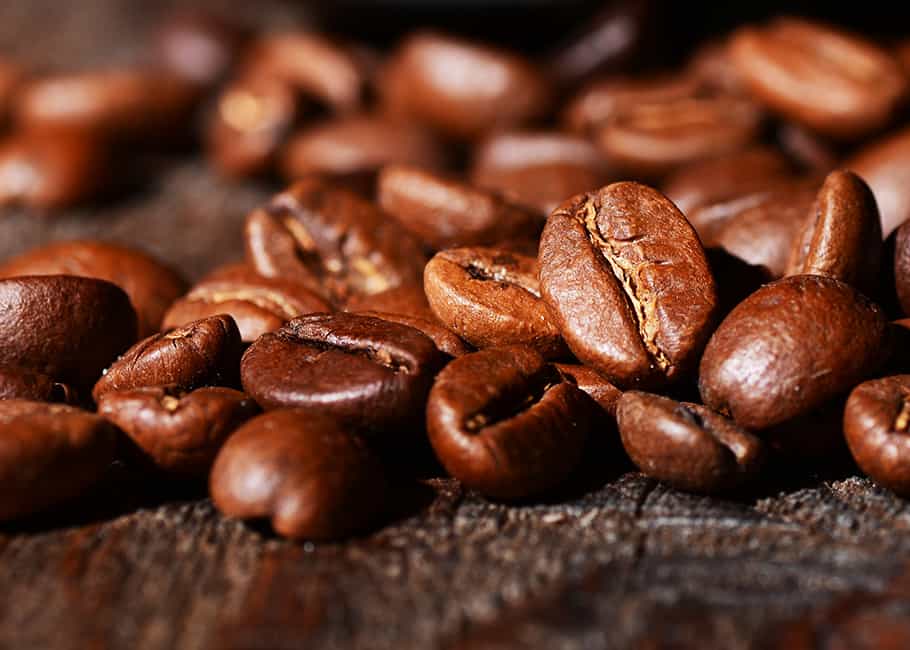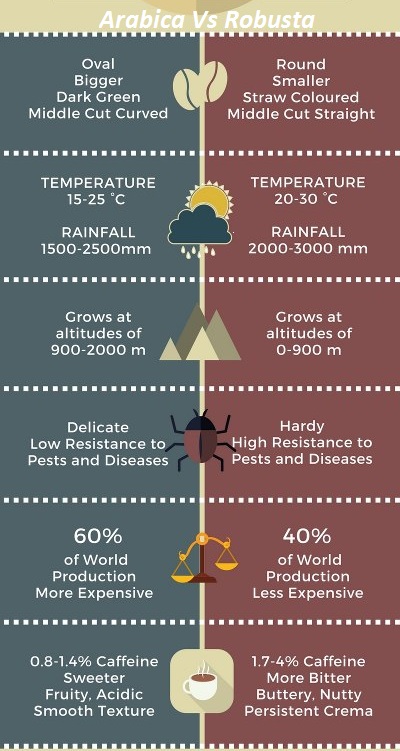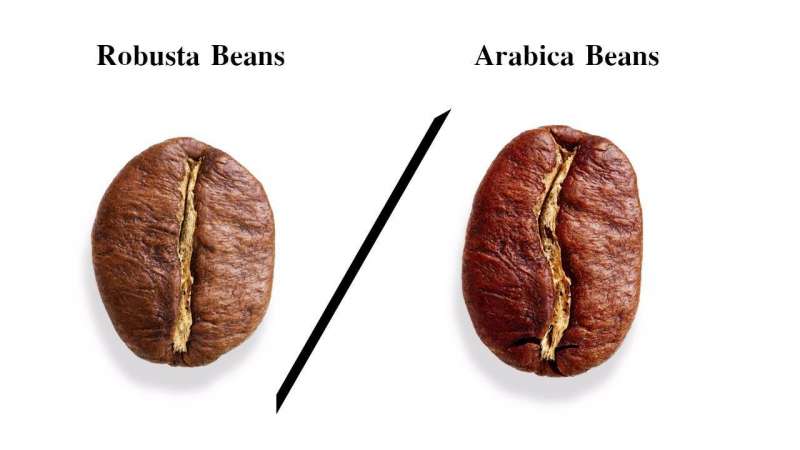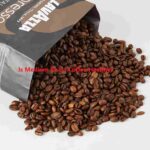When it comes to coffee, two names dominate the conversation: Arabica vs Robusta coffee. These two varieties of coffee beans have distinct characteristics that set them apart, catering to different taste preferences and brewing styles. Let’s take a closer look at the differences between Arabica and Robusta in a concise table:
| Aspect | Arabica Coffee | Robusta Coffee |
| Flavor | Smooth, complex | Bold, robust |
| Aroma | Floral, fruity | Earthy, strong |
| Caffeine | Lower content | Higher content |
| Price | Higher | Lower |
| Cultivation | Higher altitude, handpicked | Lower altitude, mechanically harvested |
Now, armed with this brief comparison, let’s delve deeper into the world of Arabica and Robusta coffee to determine which brew truly reigns supreme.
What is Arabica Coffee?

Arabica coffee, originating from the lush highlands of Ethiopia, is often revered as the epitome of quality in the coffee world. These beans are celebrated for their complex flavor profiles, ranging from fruity and floral to chocolaty and nutty undertones. Arabica beans thrive in higher altitudes with cooler temperatures and ample rainfall, resulting in a slower maturation process that enhances their flavor development. Cultivated in regions like Colombia, Ethiopia, and Brazil, Arabica coffee is typically handpicked to ensure only the ripest cherries are selected, contributing to its premium quality.
What is Robusta Coffee?

In contrast to Arabica’s elegance, Robusta coffee is bold and robust, hailing from the rugged landscapes of sub-Saharan Africa. Robusta beans are known for their strong, earthy flavor with hints of bitterness and a full-bodied mouthfeel. These hardy beans thrive in lower elevations with warmer climates, making them resilient to pests and diseases. Cultivated primarily in Vietnam, Indonesia, and parts of Africa, Robusta beans are often harvested using mechanical methods, resulting in a more affordable yet equally satisfying brew.
Arabica vs Robusta Coffee: Flavor and Aroma
The debate between Arabica and Robusta often revolves around their distinct flavor and aroma profiles. Arabica coffee is celebrated for its smoothness and aromatic complexity, offering a spectrum of taste notes that dance on the palate. From the bright acidity of Ethiopian Yirgacheffe to the velvety richness of Colombian Supremo, Arabica beans showcase the diversity of flavors inherent in the coffee world. In contrast, Robusta coffee presents a bolder, more intense flavor profile, with a strong presence of dark chocolate, spices, and even a hint of smokiness. While Arabica appeals to those who appreciate subtlety and nuance, Robusta caters to those who crave a robust and assertive cup of coffee.
Caffeine Content: The Battle of Energy
One of the most significant differences between Arabica and Robusta lies in their caffeine content. Robusta beans contain approximately double the caffeine of Arabica beans, making them the go-to choice for those seeking a powerful energy boost. This higher caffeine content contributes to the bold and intense flavor profile of Robusta coffee, making it an ideal candidate for espresso blends and strong black coffees. However, for individuals sensitive to caffeine or those seeking a milder option, Arabica coffee provides a gentler energy lift without compromising on flavor.

Brewing Techniques: Maximizing Flavor Potential
Regardless of whether you lean towards Arabica or Robusta, mastering the art of brewing is essential for extracting the full potential of your coffee beans. Arabica beans, with their delicate flavor profile, shine brightest when brewed using methods that highlight their nuanced flavors. From the precision of a pour-over to the richness of a French press, Arabica beans lend themselves well to various brewing techniques that allow their complexities to flourish. Conversely, Robusta beans thrive in espresso-based drinks such as lattes and cappuccinos, where their bold flavor can complement the richness of milk and create a harmonious balance of flavors.
Price and Availability: Exploring Economic Factors
Another aspect to consider when choosing between Arabica and Robusta is their price and availability. Arabica coffee typically commands a higher price tag due to its superior quality and higher production costs. Factors such as altitude, handpicking, and quality control contribute to the premium price of Arabica beans. In contrast, Robusta coffee is more affordable and readily available, making it a popular choice for commercial coffee blends and instant coffee products. While Arabica may be considered a luxury item, Robusta offers a budget-friendly option without compromising on taste or quality.
Why is Arabica more expensive than Robusta?
The price disparity between Arabica and Robusta can be attributed to several factors. Firstly, Arabica beans require more meticulous cultivation practices, including higher altitudes, handpicking, and stringent quality control measures. These factors increase the production costs associated with Arabica coffee, resulting in a higher price tag. Additionally, Arabica’s reputation for superior quality and nuanced flavors further drives up its market value. Conversely, Robusta beans are grown at lower elevations and are more resilient to pests and diseases, resulting in lower production costs and a more affordable price point. While Arabica may be considered a luxury item, Robusta offers an accessible option for coffee enthusiasts on a budget.
Which is healthier: Arabica or Robusta coffee?
Both Arabica and Robusta coffee offer health benefits when consumed in moderation. Arabica coffee is often touted for its antioxidant properties, which may help reduce the risk of certain diseases such as type 2 diabetes, Alzheimer’s, and certain types of cancer. Additionally, Arabica coffee tends to have lower levels of acrylamide, a potentially harmful compound formed during the roasting process. Robusta coffee also contains antioxidants and may offer similar health benefits, although research on its specific health effects is limited. Ultimately, the healthiest coffee is the one that fits into a balanced diet and lifestyle, whether it’s Arabica, Robusta, or a blend of both.
Can I mix Arabica or Robusta?
Blending Arabica and Robusta beans offers a unique opportunity to create custom flavor profiles that cater to individual taste preferences. By combining the smoothness and complexity of Arabica with the boldness and intensity of Robusta, you can create a well-balanced and flavorful cup of coffee that showcases the best of both worlds. Experimenting with different ratios, roast levels, and brewing methods allows you to tailor your blend to suit your taste preferences and brewing style. Whether you prefer a rich espresso blend or a milder coffee with a hint of boldness, blending Arabica and Robusta opens up a world of possibilities for coffee lovers.
Which has more caffeine: Robusta or Arabica?
Robusta coffee contains significantly more caffeine than Arabica coffee, making it the preferred choice for those seeking an extra energy boost. The higher caffeine content in Robusta beans contributes to their bold flavor profile and strong, intense taste. For individuals looking for a potent pick-me-up, Robusta coffee provides a powerful caffeine kick that invigorates the senses. However, for those sensitive to caffeine or seeking a milder option, Arabica coffee offers a gentler energy lift without sacrificing flavor. Ultimately, the choice between Arabica and Robusta depends on your caffeine tolerance and taste preferences.
Environmental Impact: Sustainable Coffee Practices
When choosing between Arabica and Robusta coffee, it’s crucial to consider the environmental impact of coffee cultivation and production. Arabica coffee is often associated with sustainable farming practices, including shade-grown cultivation methods that promote biodiversity and protect natural habitats. Many Arabica coffee growers also prioritize organic farming practices and fair trade certifications, ensuring ethical and sustainable production from bean to cup. In contrast, Robusta coffee cultivation has been linked to deforestation and habitat loss in some regions, highlighting the importance of supporting responsible coffee production practices. By choosing Arabica coffee from sustainable sources, you can enjoy your favorite brew while minimizing your environmental footprint and supporting the livelihoods of coffee farmers worldwide.
Conclusion: Finding Your Perfect Brew
In conclusion, the debate between Arabica and Robusta coffee is a matter of personal preference and taste. Whether you lean towards the smoothness and complexity of Arabica or the boldness and intensity of Robusta, both varieties offer unique flavor profiles and experiences that cater to different coffee preferences. Experimenting with different brewing methods, blends, and roast levels allows you to discover your perfect brew that satisfies your cravings and delights your senses. Whether enjoyed as a morning ritual or a leisurely afternoon treat, coffee brings joy and comfort to people around the world, bridging cultures and creating moments of connection. So, the next time you find yourself faced with the choice between Arabica and Robusta, trust your palate and follow your heart as you embark on a flavorful journey through the world of coffee.







